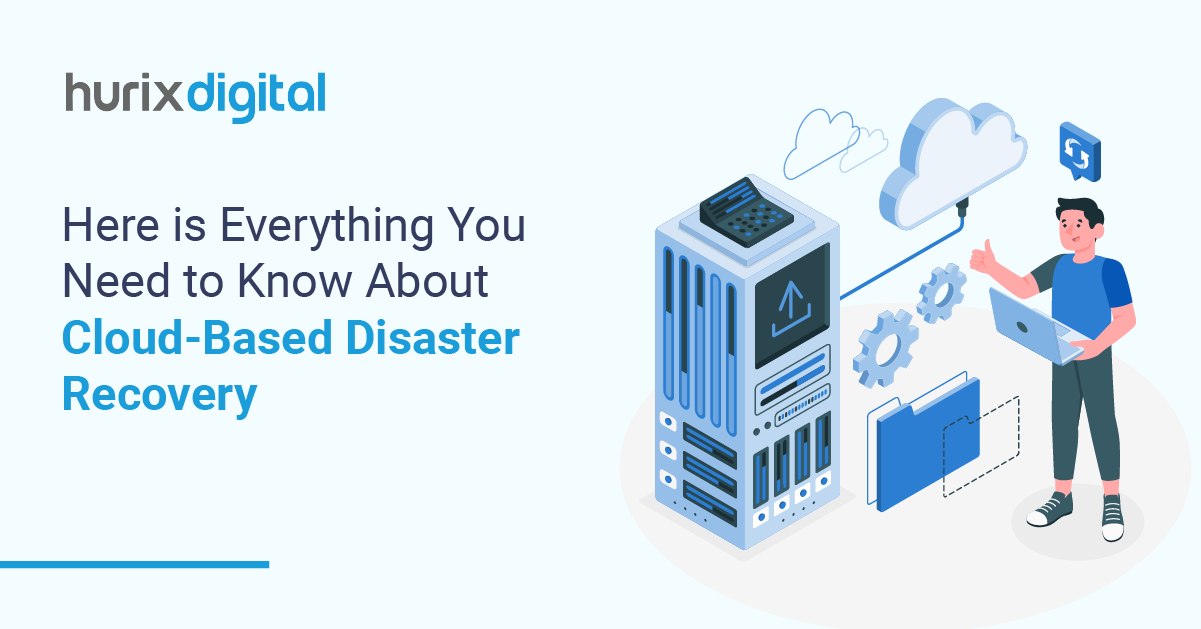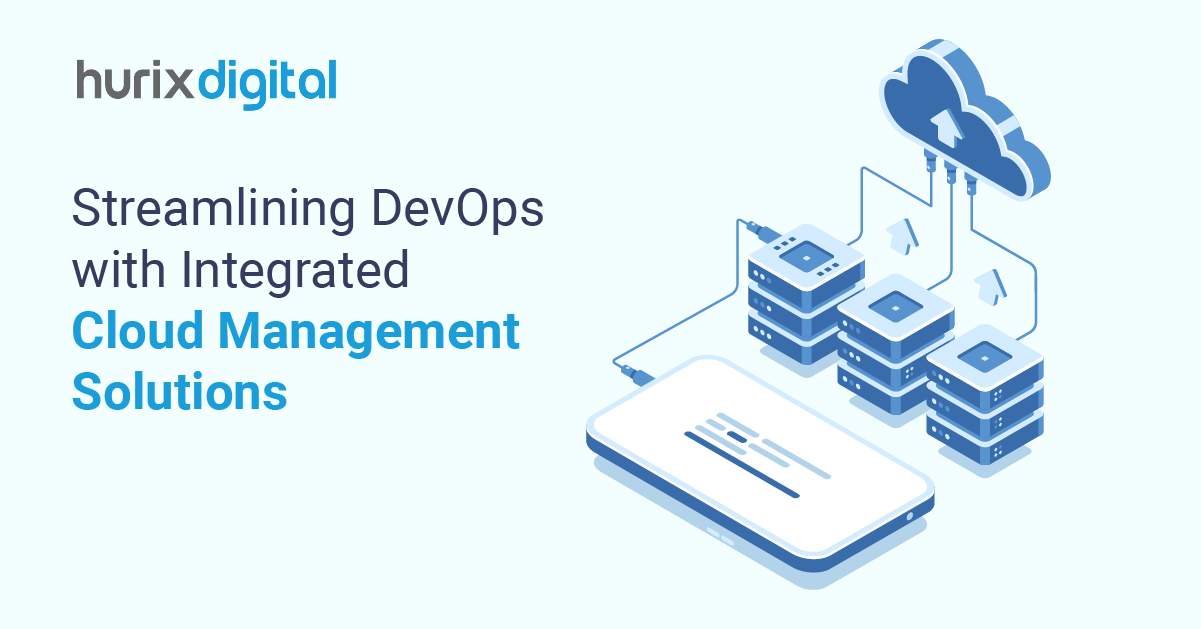
Cloud Management: 10 Reasons Why You Should Outsource Your Cloud Management
Data is the new gold. Most businesses today leverage these clusters of information to run their operations and rely on cloud services to house their data as well as applications, services, and more. In the absence of effective management of cloud services, security threats, downtime, and data loss can cost businesses dearly. Plugging these gaps requires extensive knowledge of cloud services, which may not be available in-house. That’s why outsourcing cloud management to expert third-party service providers is a prudent choice.
Table of Contents:
What is Cloud Management?
Cloud management refers to the process of maintaining administrative control and oversight over cloud services and products. It is this process that enables admins to manage different operations taking place in the cloud, right from user activity to applications, services, and data. To do this, admins use a combination of tools that help them track and monitor different types of activities on the cloud, such as data integration, usage tracking, resource deployment, and disaster recovery.
Comprehensive cloud management is all about using a mix of strategies to perform tasks such as security maintenance, performance monitoring, complaint resolution, and so on. There is no one-size-fits-all approach here, and the best course of action is often determined by factors such as the type of cloud, nature of operations, and IT services involved.
In some instances, it also means managing tasks of a complex nature like offering fully functional software applications, maintaining resource availability, and implementing intricate security protocols. It is, for this reason, well-rounded cloud management often requires the support of expert service providers.
10 Benefits of Outsourcing Your Cloud Management
If you have faced challenges in managing your cloud services using in-house resources, it may be time to consider collaborating with a third-party service provider. Here are 10 benefits of outsourcing cloud management that will help simplify that decision for you –
1. Cost-Effectiveness
Outsourcing the management of your cloud infrastructure delivers that balance of optimum gains at minimal costs. By working with a cloud-managed service provider, you can cut back and regulate the cost of network maintenance. Compared to maintaining a full-blown IT department to manage cloud services efficiently, outsourcing this task can prove to be extremely cost-effective. With just this one step, you can reduce the IT costs of your business by the thousands every year. This can be especially beneficial for small and medium-sized businesses operating on limited resources.
Also Read: 6 Best Practices for Cloud Cost Optimization
2. Predictable Expenses
Another key benefit of outsourcing cloud management is knowing exactly how much you will be spending on this service month after month. The flexibility offered by third-party service providers allows you to determine how much you pay for their service each month. From there on, you get a fixed monthly bill instead of dealing with unforeseen escalations in maintenance costs.
Besides, you can scale up or scale down your service requirements based on your operations and have the economics for the entire year worked out in advance. For instance, if you need additional services for just one quarter of the year, you can communicate that with your managed services provider and pay the difference in cost for just that period.
Also Read: All You Need to Know About Cloud Cost Management
3. Future-Ready Services
Technology today is changing at a lightning-fast pace. Accessing the latest tech tools and services is one of the key reasons why businesses are leaning in favor of a cloud environment. With in-house IT services, you’ll need to train your IT staff to work with new technologies and dedicate resources to acquire and release upgrades. Cloud technicians employed by third-party cloud management service providers, on the other hand, are well-equipped and trained to manage any such upgrades.
4. Customized Services
The flexible model of cloud management outsourcing enables you to leverage customized services. These services range from network monitoring to security protection, application integration, and performance monitoring. You have the option to pick and choose the ones that are most relevant to your business model. Based on your selection, you can also choose from different payment plans such as pay-per-service, standardized, or converged. This frees up a sizeable capital that can be channelized towards business growth.
5. Robust Network Infrastructure
All cutting-edge cloud management service providers work with a robust infrastructure and also offer 24×7 support to their clients. So, you don’t have to worry about unexpected breakdowns and downtime, which can adversely impact business operations. From monitoring and scanning networks to spot patch security requirements to integrating existing processes with new networks, all your management needs for the cloud can be seamlessly handled by their network infrastructure.
6. Centralized Services
Outsourcing the management of your cloud services also brings you the advantage of having all your servers and applications managed through a central data center. This helps in improving productivity at workplaces, as remote users and employees can access all the applications and servers, including virtual services. Besides, it gives you the safety net of backups for your storage, so that your business operations don’t suffer in case of any data loss.
Also Read: How Can Enterprises Benefit from a Successful Cloud Migration
7. Comprehensive Services
Most cloud service providers offer comprehensive services with a special focus on maintenance, performance, and security. This means assured business continuity, with minimal risk of data loss and security threats. The longer you work with an outsourced partner, the better the response time for the resolution of issues owing to increased familiarity with your network.
8. Quick Recoveries
Quick recovery in the event of a disaster, with minimal downtime, is another benefit of outsourcing cloud management services. Most of these service providers develop an intricate net of data centers and networks to weed out redundancies and enhance resilience. This not only ensures that your networks stay operational without any lags on a day-to-day basis but also helps them bounce back from a setback seamlessly.
9. Speedy Response Time
A third-party cloud management service provider also brings you the benefit of a speedy response to any issues. This is because they can monitor, access, and repair a majority of network issues remotely. In the rare event that a problem requires to be addressed on-site, cloud technicians are dispatched to resolve it the same day.
10. Constant Communication
Vendors specializing in outsourced cloud management understand that businesses may need continued technical support and intervention to carry on their operations. That’s why there is an increased focus on constant contact and communication. A representative of such third-party vendors is available to address all your queries.
Also Read: Top 8 Cloud Security Best Practices
A Futuristic Solution
An enterprise that is looking to build a future-ready business model will invariably rely on a host of applications and programs to run its operations. Outsourcing your cloud management requirements ensures that your resources and capital do not get entangled in a loop of constant troubleshooting. You can focus on business growth, leaving the technical stuff to the pros.
Hurix is one such organization that takes care of all your cloud management needs. Get in touch with Hurix to future-proof your business. today!








